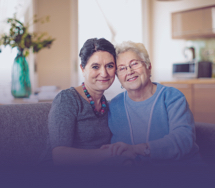Alternative Mesothelioma Treatments Used by Survivors
Alternative treatments for mesothelioma, when used alongside traditional treatment options, can ease symptoms, boost your mental and physical health, and improve your overall well-being while fighting cancer.
Why Do People Use Complementary and Alternative Mesothelioma Treatments?
Because there is no proven cure for malignant mesothelioma, many people diagnosed with this cancer are willing to try alternative mesothelioma treatment options that might help them live longer. Many long-term mesothelioma survivors say they went beyond the treatment recommendations offered by their oncologist to treat their disease.
The term “complementary and alternative medicine” (CAM) is used to describe two approaches: Complementary therapies are added to traditional cancer treatment for a more holistic approach to treating cancer, while alternative therapies are used in place of traditional cancer treatment. The complementary approach is common, while the alternative approach is rare.
The benefit of the complementary approach — also called integrative oncology — is that a person is receiving the best possible care from traditional and natural therapies. Cancer treatments may be aggressive and damaging to the body, but they can also extend survival for many people with mesothelioma. Traditional treatment isn’t for everyone. Some people decide against it and others don’t qualify for it. Whether you decide to take a complementary or alternative approach to treating your mesothelioma is a personal decision made with the help of your family and health care team.
Mesothelioma Survivors Who Used Complementary Methods of Treatment
Many mesothelioma survivors have used complementary therapies. Some survivors added CAM therapies to their traditional treatment plan to give themselves a more holistic approach to healing. Other survivors didn’t qualify for traditional treatment because their cancer was too advanced, leaving them only with complementary therapies to manage the illness. Regardless of what motivated these survivors to try CAM therapies, they took a proactive approach to improve their prognosis.

Judy G. lived with pleural mesothelioma for more than 18 years with the help of traditional cancer treatment and complementary therapies. In addition to two surgeries and occasional radiation therapy to keep her tumors under control, Judy drank mangosteen juice and spent time each day in meditative prayer. Mangosteen juice is reported to boost immunity and overall health. The time Judy spent praying helped her to handle stress. She also enjoyed gardening and felt like it helped her remain active in a meaningful way.

James “Rhio” O. lived more than eight years with pleural mesothelioma using alternative medicine. Upon diagnosis, Rhio was told his cancer had spread too far for surgery or chemotherapy to be effective. He decided to try the natural approach and worked with health professionals like nutritionists, holistic doctors and psychologists. Rhio changed his diet, took supplements and practiced mind-body medicine. “What do we long-term survivors have in common? Most of us took control of our health,” said Rhio.
Paul K. has lived with peritoneal mesothelioma for more than 16 years using complementary and alternative mesothelioma treatments. The only semi-traditional cancer treatment Paul used is Ukrain, a drug containing the herb Chelidonium majus and chemotherapy agent thiotepa. The rest of Paul’s treatment is comprised of complementary therapies like supplementation with vitamins and herbs, mind-body medicine, vegetarianism and a whole food diet. Paul believes his focus on nutrition and overall health are major factors to his survival.

Complementary Methods Have Shown Promise
Researchers have clinically tested acupuncture, massage, mind-body therapies and other complementary therapies for their value in cancer care, and they are used by mesothelioma survivors.
Although no traditional or complementary treatment has proven to cure mesothelioma, some complementary therapies are effective at treating symptoms of mesothelioma and certain side effects of traditional cancer treatments. Complementary therapies that boost physical or mental health can positively impact overall health, helping you to live better with mesothelioma.
Acupuncture
Acupuncture is an ancient healing modality that applies needles on points throughout the body to relieve pain and promote health. Many people with cancer have tried acupuncture and report that it helps with pain, fatigue, anxiety and nausea. Clinical studies of acupuncture have proven the therapy is beneficial for pain, as well as radiation- and chemotherapy-induced and postoperative nausea (though not more beneficial than current anti-nausea medications). People who experience side effects from pain relievers and anti-nausea medication may consider acupuncture to help control pain and nausea following cancer treatment.
Massage
Massage involves rubbing and kneading muscles with the hands using various techniques. Massage therapists are trained to safely work with the human body and certain therapists are specially trained to work on people with cancer. Most people report numerous physical and mental health benefits of massage, notably relief of pain, muscle tension and anxiety.
A study published in the Journal of Pain and Symptom Management found that massage therapy reduced pain, nausea, fatigue, anxiety and depression symptoms in cancer patients by approximately 50 percent. Patients who received a Swedish or light touch massage reported a 58 percent improvement compared to 50 percent improvement reported by patients receiving foot massages. Participants reported further reduction of symptoms with each additional massage, indicating the effects of massage increase with additional treatment.
Lymphatic massage, also known as manual lymph drainage, is a type of massage used to treat swelling of the limbs (called lymphedema) following certain cancer surgical procedures. The technique is commonly performed by lymphedema specialists in a hospital or outpatient facility.

Mind-Body Practices
Mind-body medicine encompasses therapies that unite the mind with the body. Yoga, qigong and tai chi are the most commonly practiced forms of mind-body therapy. Clinical studies show these therapies offer a range of health benefits to people facing cancer.
Yoga aspires to unite breathing with body postures and mindfulness. The postures range from simple seated positions to standing and balancing poses.
Studies on the effects of yoga in people with cancer found yoga can:
- Reduce stress, fatigue and joint pain
- Improve mood, sleep, quality of life and well-being
- Increase the ability to exhale more air
Gentle yoga styles are best for people going through cancer treatment or recovery. Chair yoga, restorative yoga and yin yoga are examples of gentle styles. Classes designed for people with cancer are available online and at many major cancer centers through the U.S.
Qigong and tai chi are similar practices that also unite mindfulness with breathing and body postures. Originating in China thousands of years ago, the discipline focuses on moving slowly and mindfully through a range of postures.
Clinical studies in cancer patients report that qigong and tai chi can:
- Reduce fatigue, inflammation and cortisol levels
- Improve quality of life, physical functioning and vitality
- Boost mental health, improve self-esteem and cognitive function, and reduce signs of depression
Practically all forms of qigong and tai chi are safe for people with cancer to practice. Classes are available online and a few cancer centers in the U.S. offer tai chi classes to patients.
Meditation
The essence of meditation is mindfulness. Though certain forms of meditation solely seek to control or limit the mind’s thoughts, most approaches to meditation teach that calm observation of the mind is a primary goal of the practice. Mindfulness meditation is a popular form of nonreligious meditation that helps you become aware of your mind’s thoughts through a practice of nonjudgmental observation and acceptance.
A review of studies on mindfulness meditation found the practice improves:
- Quality of life
- Depression
- Anxiety
- Coping style
- Medical symptoms
- Sensory pain
- Physical impairment
Mental Health Counseling
Many people who face cancer choose to talk with a mental health counselor to help them process the cancer experience. Counseling helps people with cancer and their loved ones to feel less overwhelmed and more in control of how they respond to stressful experiences. Counselors can help you manage heavy emotions and address any relationship, work or financial concerns. Counseling is a comforting and constructive therapy that could help you and your loved ones adjust to life after a mesothelioma diagnosis.
Counseling is available online, over the phone and in person. Individual, couple, family and group counseling is available. An online mesothelioma support group is available to people with mesothelioma and their caregivers. Many hospitals and cancer centers offer mental health counseling to patients — ask your health care team if a counselor is available to you. You can also find a counselor near you with the online Therapy Directory.
Dietary Improvements
Many people who live with mesothelioma for years beyond their prognosis say that dietary improvements help them feel better. Eating a healthy diet provides the body with the nutrients it needs to fight off infection and disease. A healthy diet also keeps you energized and boosts your mood.
Learn more about the changes you can make to improve your diet and positively impact your prognosis.
 Do You or a Loved One Have Mesothelioma?
Do You or a Loved One Have Mesothelioma?